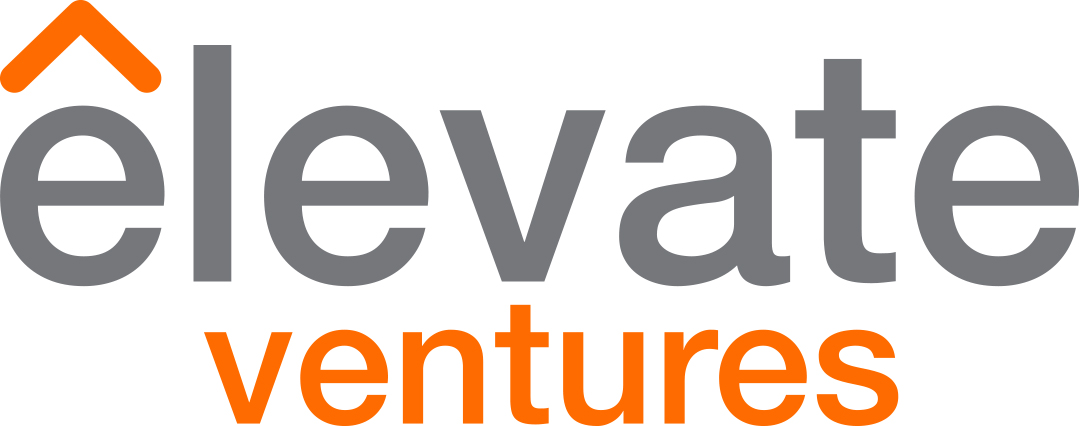Application support and matching grant funds to be realigned under Elevate Ventures
INDIANAPOLIS – To further streamline operations for Indiana’s small businesses, Elevate Ventures and the Indiana Economic Development Corporation (IEDC) announced today the state’s Small Business Innovation Research and Small Business Technology Transfer (SBIR/STTR) program will now be administered fully by Elevate Ventures.
To increase efficiency in the grant application and evaluation process, the Indiana Procurement Technical Assistance Center (PTAC) will realign the SBIR/STTR program, which encourages R&D, technological innovation and commercialization, under Elevate Ventures. Previously, Indiana PTAC offered counseling and application assistance to help small businesses apply for the SBIR/STTR grants, while Elevate Ventures distributed matching funds from the state to companies that were awarded federal grants.
“Today, nearly 500,000 small businesses operate across the state, and many of these companies have received one-on-one grant counseling from the Indiana PTAC,” said IEDC President Elaine Bedel. “As a state, we’re committed to delivering great government service to taxpayers, which is why Indiana is ranked first in the nation for government efficiency and regulatory environment. This move allows the state to continue supporting Hoosier entrepreneurs by streamlining SBIR/STTR’s grant administration while also increasing small businesses’ access to investment capital at an earlier stage in their development.”
The SBIR/STTR program is the largest source of early-stage STEM research and development financing in the United States. Indiana’s SBIR/STTR matching program – which matches Phase 1 SBIR/STTR grants up to $0.50 toward every federal dollar awarded up to $50,000 with a lifetime maximum match of $150,000 per recipient – has provided over $4.5 million to 67 companies across 13 counties from 2014 to 2017. Together, these companies have attracted over $16.6 million in federal SBIR/STTR grants and nearly $10.9 million from other capital sources. The SBIR/STTR program, through Indiana PTAC, offered 717 advisory hours to 149 clients in 2016.
Since 2014, the IEDC and Elevate Ventures have co-managed the SBIR/STTR program. With the realignment, Elevate Ventures will now administer both advisory and funding services, creating a one-stop shop for innovators and businesses by providing topic identification assistance, proposal reviews, letters of support for companies seeking funding, reviewing and approving state funding matches up to $50,000, disbursing funding, and post-funding assistance and consideration by other investment programs under Elevate Ventures’ management.
“Elevate Ventures is committed to providing assistance and investment capital to Indiana entrepreneurs as well as building communities focused on entrepreneurs and innovation. As we continue to cultivate entrepreneurial cultures, we are giving innovators across the state the tools and resources to launch, grow and succeed,” said Elevate Ventures CEO Chris LaMothe. “This consolidation simplifies the assistance, application and funding distribution to ensure Indiana entrepreneurs have a gateway into a venture capital firm early on, and a partnership with a funding source that can come alongside them from ideation to exit.”
The SBIR/STTR program is one of many initiatives the state utilizes to increase support and resources for innovators and entrepreneurs, helping companies start and scale their businesses and create new jobs for Hoosiers. The SBIR/STTR program is joining similar capital access programs available to Indiana innovators through Elevate Ventures, including direct investments through the Twenty-First Century Research and Technology Fund.
Under the IEDC, Indiana PTAC will continue to offer support to small businesses by providing free, one-on-one counseling on how to compete for and win federal, state and local government contracts. In 2017, Indiana PTAC assisted 800 existing small businesses, helping 86 clients secure nearly $31 million in federal contracts. Together with the Indiana PTAC, the Indiana Small Business Development Center is committed to providing small businesses and entrepreneurs with expert guidance and resources on how to start and grow a business.
Examples of Indiana businesses that have received SBIR/STTR grants from federal agencies in recent years include:
NutraMaize Growing Better Ears With SBIR/STTR (Lafayette, Ind.)
Evan Rocheford is CEO of NutraMaize, a Lafayette, Ind., company working on the development and commercialization of a more nutritious non-GMO variety of orange corn high in carotenoids. In 2017, NutraMaize received an SBIR award of $99,977 from the Department of Agriculture and a $225,000 STTR award from the National Science Foundation, as well as matching funds from the state of Indiana.
“Submitting your first SBIR/STTR can seem insurmountable, but thanks to Dr. Lisa Hoverman and PTAC, we were connected with the information and resources we needed to not only complete the process, but successfully receive funding.”
NutraMaize is using its federal funds to pursue specific research goals aimed at furthering its technology in preparation to scale the business. The USDA award is focused on looking at the potential of the orange corn to help combat common health issues in poultry. The NSF funds are being put toward taking the current variety of NutraMaize corn and converting it into a higher-yielding hybrid variety for mass market applications.
The more flexible state matching funds, totaling $99,989 can be used to pay for non-R&D needs such as personnel, marketing and sales.
“As an early-stage company, it’s difficult to grow without some sort of external funding. So for us, the state matching funds are providing a critical infusion of capital that will enable us to get to a point where we are a more scalable and investable company,” Rocheford says.
State Match Allowed Sintact Medical Systems to Keep Moving Forward (Bloomington, Ind.)
After receiving its Phase 1 SBIR award in June 2015, Sintact Medical Systems used $50,000 in matching state funds to cover general operating costs including patent-related costs as well as grant costs. Sintact received a Phase 2 award in April 2017.
“The matching state funds allowed for company operations to continue in parallel with R&D efforts and extended our funding runway, allowing for other grants to be submitted,” says Sintact Medical Systems CEO Erik Robinson.
The Bloomington, Ind., company develops non-resorbable films that significantly reduce the likelihood of tissue attachment and associated post-operative complications.
Innov8IN’s SBIR/STTR Accelerator (South Bend, Ind.)
Dave Temeles is familiar with the SBIR/STTR landscape and has seen how the program can be a powerful gateway for companies interested in securing major government contracts.
When he and his family moved from Washington, D.C., to South Bend in 2016, he looked at how well Indiana, and in particular the North Central region, was winning federally funded business deals compared to neighboring states. He saw a stark imbalance and a great opportunity.
How deep is the disparity? In 2016, Indiana companies did $3.9 billion worth of business in federal contracts. Compare that to $5.2 billion in Michigan, $5.4 billion in Ohio, $8.7 billion in Illinois and $6.6 billion in Kentucky.
Through support from the law firm where he works, Ladue Curran Kuehn, Temeles is tackling the challenge through the new development of Innova8IN, a growing SBIR/STTR accelerator focused on helping companies get into federally funded research and the SBIR/STTR program.
Phase 3 of the SBIR/STTR program provides a real opportunity to get into federal contracting, but is often misunderstood. If a company has received SBIR/STTR funding, the federal government has the ability to use a Phase 3 contracting vehicle to buy its product or service without the constraints of competition, money or time limitations. These barriers are crossed through the completion of Phases 1 and 2.
More About SBIR/STTR
SBIR/STTR are two of the most effective STEM programs in the federal government and important sources of pre-seed and seed-stage non-dilutive capital. Funding is available from 11 participating agencies throughout the United States and focus on various technological areas, including the following:
- Department of Agriculture
- Department of Commerce
- Department of Defense
- Department of Education
- Department of Energy
- Department of Health and Human Services
- Department of Homeland Security
- Department of Transportation
- Environmental Protection Agency
- National Science Foundation
- National Aeronautics and Space Administration
Companies eligible for Indiana’s SBIR/STTR program are Indiana-headquartered, for-profit “small businesses” with fewer than 500 employees. They must be owned by one or more individuals who are citizens of, or permanent resident aliens in, the United States of America. Parties with an SBIR/STTR request should contact Elevate Ventures.


